Travel The World With These Foreign Films While You Wait Out The Coronavirus Crisis At Home
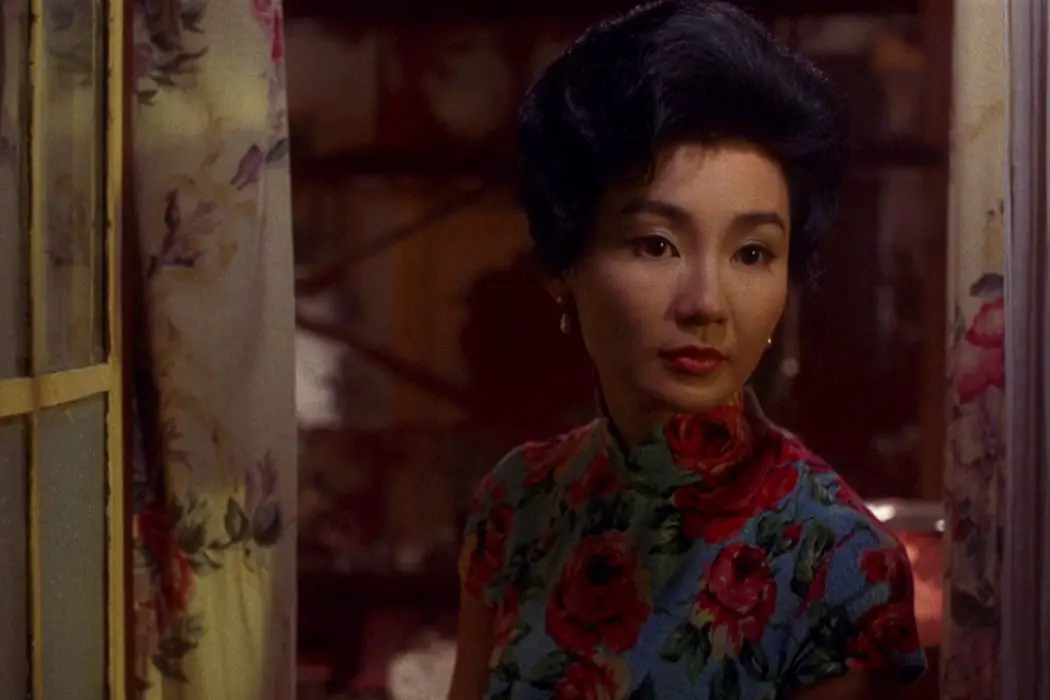
Tim Brinkhof is a Dutch journalist based in New York.…
Coronavirus put your long-awaited spring break plans on hold? Sure sucks, but it’s not the end (at least not yet). As we enter an indeterminate period of self-quarantine and social-distancing, we can thank modern technology for enabling us to continue traveling the globe from the comfort of our living rooms; and, in that spirit, here is a list of authentic international films that will take you to places your government currently doesn’t want you to visit.
One important disclaimer before we start: I did not choose these movies because I think they offer either a definitive or a complete reflection of the cultures they depict. Rather, I chose because I think they’re damn good movies.
Brazil: City of God (2002)
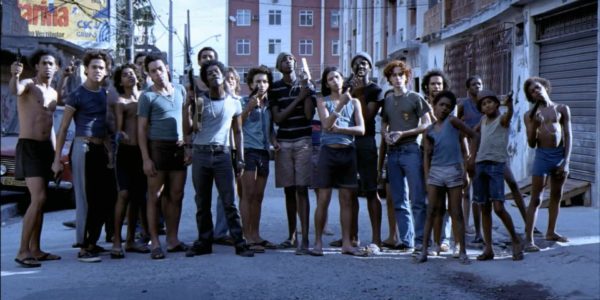
This highly ambitious biographical sketch tells the story of a good-natured, photography-loving boy named Rocket who spends a lifetime trying to escape the slums of Rio de Janeiro whilst avoiding the debilitating influence of a few harmless and misguided childhood playmates that have since developed into violently volatile crime lords.
While it didn’t receive an Oscar nomination at the time of its release, City of God quickly went down in history as not only one of the best foreign films, but one of the best films period. Named after a real neighborhood in Rio, it makes a convincing case for the banality of evil by linking crime to poverty as part of a never-ending cycle of repression that has been the subject of many a movie in the past decades, though seldom handled so ingeniously as here.
Available on: Netflix, Amazon Video, YouTube
Chile: Machuca (2004)
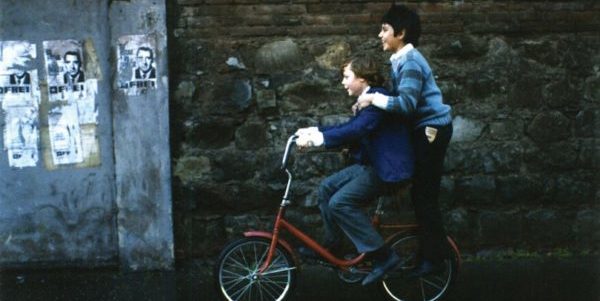
In a Chile on the verge of a reactionary military coup that’s seeking to stop the liberal reforms of their newly elected Marxist president, two young boys — one from a wealthy upbringing, the other from the lower classes — become friends in spite of their environment telling them they ought to be arch-enemies.
Like some other films on this list, Machuca challenges the political turmoil that dominates the country in which it takes place. Through its narrative, the film is able to transcend the black-and-white distinctions which normally organize the debate, and allow viewers to put aside their differences.
Available on: Fandor
China: In the Mood for Love (2000)
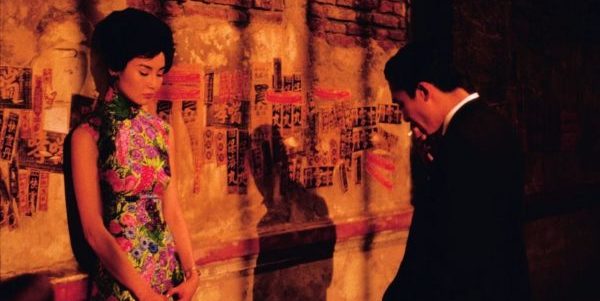
Suspecting infidelity on behalf of their respective spouses, a man and woman seek solace in a platonic relationship, but will it stay platonic for long?
Periodically cited by high-brow film critics as one of their all-time favorites, Hong Kong filmmaker Wong Kar-Wai’s masterpiece appeals to more than just the refined taste of cinema studies veterans. From a very relatable story to the stunning shots captured by Australian expatriate Christopher Doyle, In the Mood for Love, remains much beloved.
Available on: Kanopy, Criterion
Germany: Ali: Fear Eats the Soul (1974)
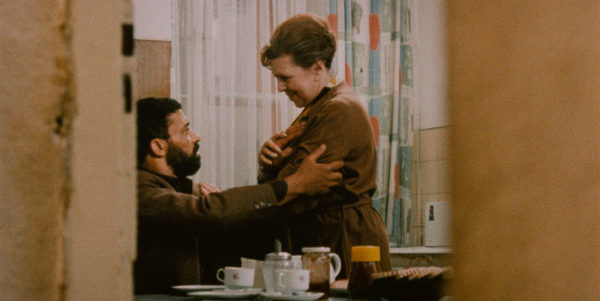
When a lonely elderly woman falls in love with a young ostracized Moroccan immigrant, their unlikely love is tested by a judgmental society whose norms and values are still tainted by the ugly legacy of the forlorn Third Reich.
You probably wouldn’t guess that a progressive flick like this would have drawn inspiration from a conservative Golden Age Hollywood melodrama as All that Heaven Allows (1955), but I guess that goes to show the power of love transcends time, place, and creed — a touching film whose message of unconditional love remains eerily salient to the European political climate of today.
Available on: Amazon Video, Kanopy, Criterion
Iran: A Separation (2011)

According to the court, an Iranian couple lacks sufficient to file for divorce, but inseparability soon proves the least of their problems when their maid holds them both accountable for her miscarriage, which was supposedly caused by a scuffle between her and her employers some time ago.
A crown jewel of Iranian cinema, A Separation is filled with the kind of conflict that is unmistakably commonplace around the globe, and yet flavors it with issues that are particular to Iranian life, including the conflict between temporal human relations and eternal religious teachings.
Available on: Amazon Video, Vudu, YouTube
The Netherlands: Antonia’s Line (1995)

Sorry for those who of you were looking forward to roaming the cobbled, canal-encircled streets of Amsterdam high of their asses and tripping balls, but maybe — just maybe — you could use this as an opportunity to learn a thing or two about Dutch society that doesn’t involve legalized narcotics.
Described as a “feminist fairy-tale,” writer-director Marleen Gorris’ debut feature follows the radically different and yet surprisingly similar lives of three generations of women in the Dutch countryside looking for a mix of happiness and independence. Accompanied by a beautiful score from British composer Ilona Sekacz and stellar camera work that could make even Roger Deakins feel insecure about himself, Antonia’s Line offers one of the most enchanting representations of Holland ever put to screen.
Available on: Tubi, Amazon Video, Kanopy
Russia: Trotsky (2017)

All right, I’m cheating a bit since this is a miniseries and not a feature film. However, clocking in at just about eight hours, I prefer to see Russia’s new show about the simultaneous idolization and demonization of the fallen revolutionary leader Leon Trotsky as one very long motion picture.
Drawing heavily from historical documents and political theory, Trotsky manages to partake in an interesting discussion about the nature of socialism as well as the psychology of persons behind that movement. But rest assured, it is far from dry and dreary. On the contrary, each conversation becomes an exciting sparring match that echoes the best elements of early seasons from Game of Thrones. On top of that, the production quality is surprisingly sophisticated, which is rare for a biopic, especially one made by a small Russian studio.
Available on: Netflix
Japan: Shoplifters (2018)

If you’re one of the billions of people who enjoyed Bong Joon-Ho’s 2019 hit Parasite you might wanna give its less financially successful thematic older sibling a try. Shoplifters follows a poor family who rely on their cunning and creativity to get by. Sound familiar? No gory, Tarantino-esque finale in this one, though, just slow and silent heartbreak.
Effectively rebooting the familial drama as perfected by cinema legend Yasujirō Ozu in his 1953 classic Tokyo Story, director Hirokazu Koreeda’s latest film — one in a long line of festival darlings — brings a classic story to modern audiences.
Where to watch: Hulu, Amazon Video, YouTube
South Africa: Tsotsi (2005)

A young Johannesburg street thug steals a car only to find a baby inside.
Where any other filmmaker would have used this premise as the backdrop for a clean and predictable positive reevaluation of the self, writer-director Gavin Hood knew better. Like other kids at the bottom of the pecking order, Gavin’s David is not a criminal because he is evil, but because he had a tough life — and something like that doesn’t just change overnight.
Available on: Amazon Video, YouTube, Vudu
Watch Next
Since I have not seen every movie ever made, this list is neither as extensive nor as diverse as I would like it to be, and I’m sure you’d agree. Given that the crisis will likely last longer than it will take you to watch these movies back-to-back, here’s some other lists you might wanna take a look at:
- BBC Culture’s top 100 greatest foreign-language films
- The Guardian’s poll for greatest foreign films of all time
- Film Comment’s top 150 unreleased foreign films of the 90s
- Time Out New York’s top 50 best foreign films of all time
Does content like this matter to you?
Become a Member and support film journalism. Unlock access to all of Film Inquiry`s great articles. Join a community of like-minded readers who are passionate about cinema - get access to our private members Network, give back to independent filmmakers, and more.
Tim Brinkhof is a Dutch journalist based in New York. He studied history and literature at New York University and currently works as an editorial assistant for Film Comment magazine. His writing has been published in the New York Observer.













